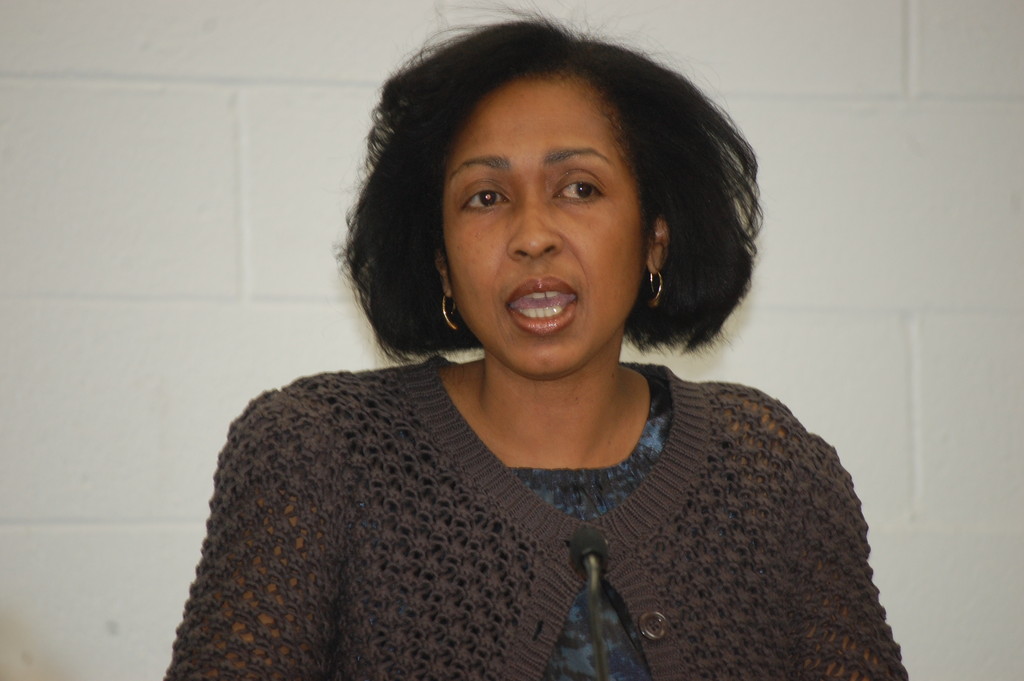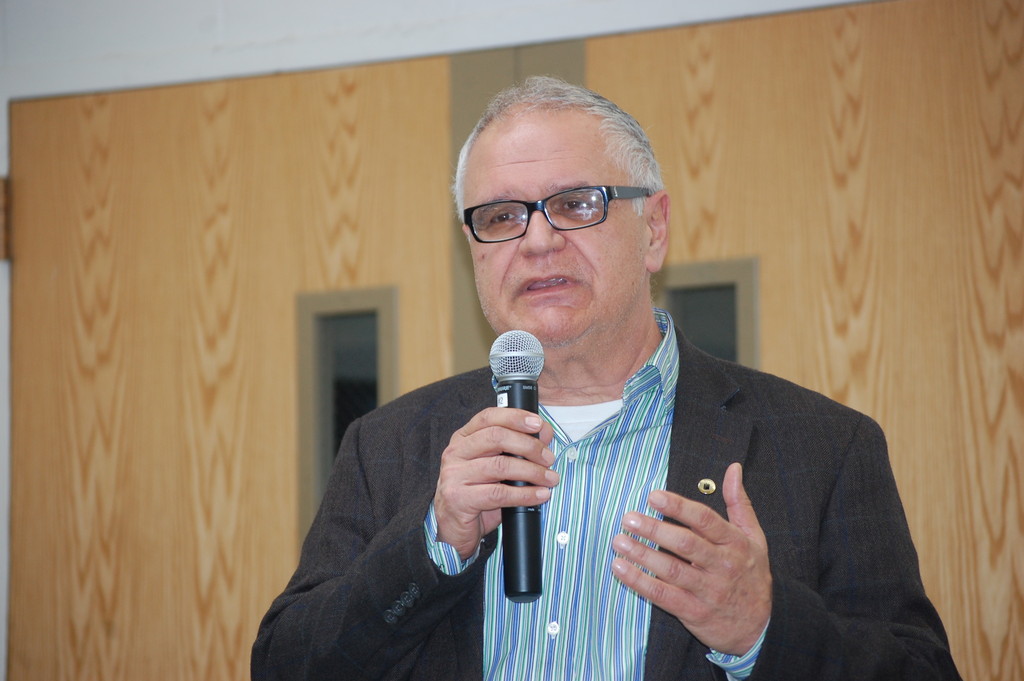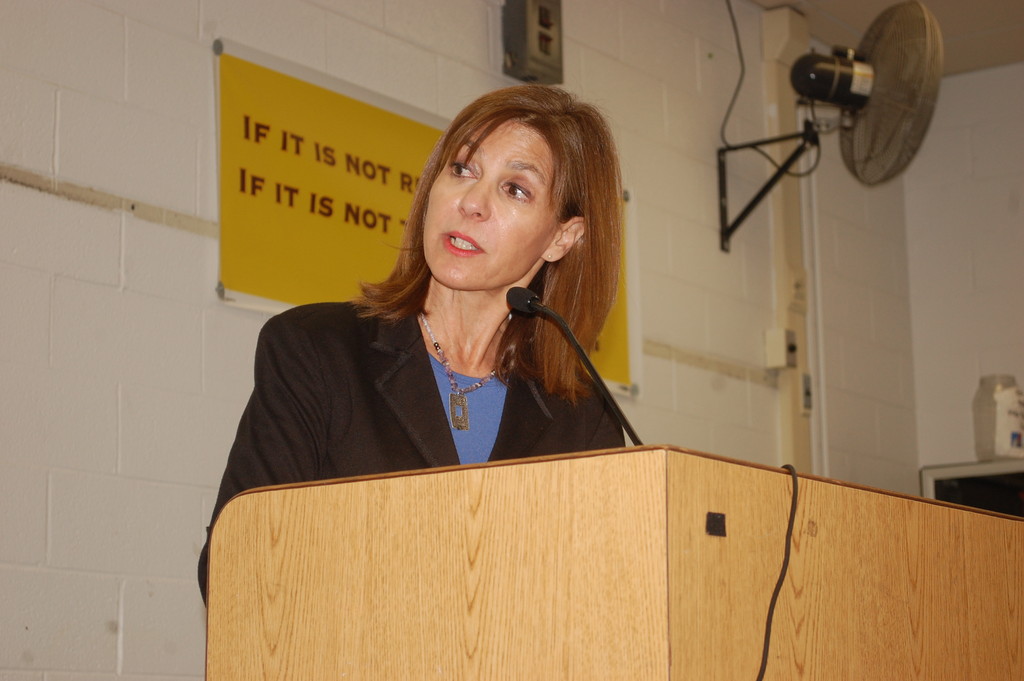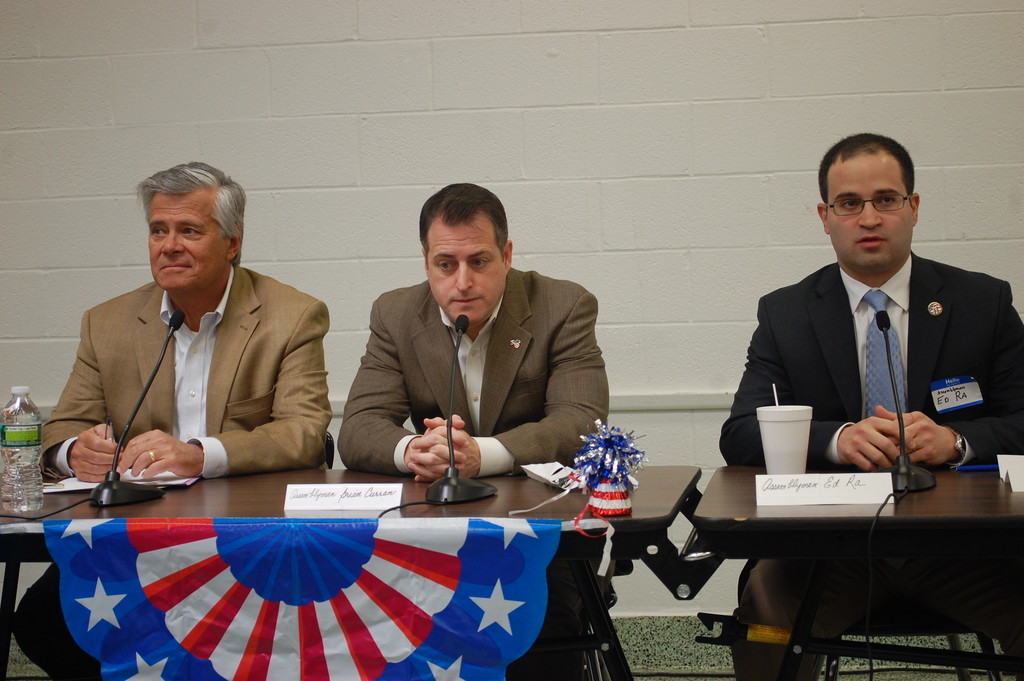Educators, legislators come together in Valley Stream
Pension reform, state funding for schools and mandate relief were just some of the topics discussed at last Saturday morning’s annual PTA Legislative Breakfast, attended by about 100 people at Memorial Junior High School.
Representatives from the state, county and village heard from school administrators, Board of Education members, teachers, parents and community members about various issues affecting education. Jeanne Greco Jacobs, president of the Central High School District board, expressed her concerns about the new property tax levy cap, which limits the amount that school districts can increase revenue each year. While the cap will initially help districts to become more efficient, it will make it harder for schools to sustain quality programs in the long-term without regular increase in state aid, she said.
Greco Jacobs asked legislators to keep in mind the ultimate purpose of public schools. “Our job as a school district is to ensure that every child is college ready by the time they leave us in 12th grade, college and career ready,” she said. “In today’s global society, a college education is becoming more and more essential.”
District 30 schools chief Dr. Elaine Kanas, speaking on behalf of the four Valley Stream superintendents, had several requests for legislators, specifically Sen. Dean Skelos and Assemblymen Brian Curran and Ed Ra. She noted that Long Island needs its fair share of education. While it has 17 percent of the state’s public school students, the region only receives 12 percent of total aid.
She also called for charter school reform. Kanas explained that the intent of charter school legislation was to give children an alternative to failing schools in impoverished neighborhoods, not an alternative to well-performing suburban schools.
Yet, Kanas said, school districts must pay tuition and transportation costs for any child who attends a charter school in New York state. Those costs run upwards of $20,000 per child. That’s money, Kanas said, that is being taken away from the public school students and further putting a strain on budgets.
State lawmakers also need to address the unintended consequences of the tax cap legislation, Kanas said. She cited one example that hits close to home, the bus proposition in District 13. The voter-requested proposition means that the district’s budget needs a supermajority (60 percent) to pass, because it pushes the allowable tax levy increase over the limit. However, she said, the budget proposal itself is under the limit.
Skelos said that lawmakers are trying to get a clarification from the state Education Department, one that would be favorable for District 13, and expects an answer within the week. He said that the Senate and Assembly could look into passing legislation to address this issue, but that probably wouldn’t be done in time for the May 15 budget vote.
Ra said he is also aware of the situation, and wants to ensure that all statutes of the law are being implemented properly. “It’s certainly something that we’re working on,” he said.
District 13 Board of Education president Frank Chiachiere said he is hopeful that lawmakers can get the state Education Department to give the district some good news, so it would only need a simple majority to pass its budget. “We did our part,” he said. “We came in under the cap.”
Lisa Pellicane, a District 24 school board member and parent of a fifth grader and a seventh grader, asked lawmakers to look at the state testing program. She noted that the tests will be longer this year. “I really feel that New York state is setting our children up for failure,” she said. “New York state puts so much pressure on students and educators. It has come down to teaching to the test.”
Skelos responded that these decisions come from the New York state Board of Regents and state Education Department.
A pair of District 13 teachers, Carole Hawkins and Kathy Stirrat, expressed their concerns about the new teacher evaluation system. Hawkins said that the system is being designed to humiliate teachers through the publishing of teacher evaluations, which is not the proper way to improve education.
Stirrat, a special education teacher, had concerns about how the teacher evaluations would affect those who work with a school’s neediest students who do often struggle on state tests.
Skelos said the state is looking at pension reform, possibly adding a Tier 6 that would diminish benefits for new employees entering the system.
Ingrid Wylie, president of the Valley Stream Council of PTAs, called on legislators to fight for the best interests of children. She asked school administrators to ensure that Valley Stream schools have a quality curriculum and quality teachers, and she implored parents to join the PTA and become involved in their child’s education.
Children are growing up in a different world than their parents, especially with all the access to technology and social media, Wylie explained. She said it is important that schools prepare children for a 21st Century world, and that requires proper funding. “Budgets are the reflection of our values,” she said. “They reflect the choices we as a society make.”
Kanas said that Valley Stream school leaders will do their part, and promise to work their very hardest “in our classrooms and in our board rooms.”

 50.0°,
Overcast
50.0°,
Overcast 













